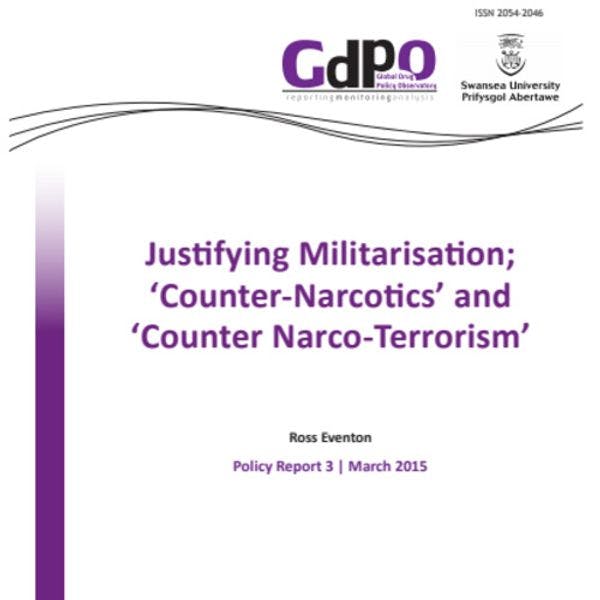Justifying militarisation; 'Counter-narcotics' and 'counter narco-terrorism'
Three inter-related developments within US foreign policy have emerged in recent years: the militarisation of Central America states under the auspices of confronting drug trafficking organisations and improving human security; the deployment of militarised DEA agents overseas; and the emergence of ‘counter narco-terrorism’ as a means of justifying such policies.
The DEA’s Foreign-Deployed Advisory Support Teams (FAST) carry out investigations and targeted interdiction operations overseas. They are an upgrade to a similar programme begun in the 1980s and later abandoned, and emerged in their recent form in Afghanistan in 2005 as a funding-focused counter-insurgency initiative. FAST have since been deployed in Central America where agents work alongside repressive security forces and have been implicated in a number of civilian deaths.
A surge of US aid to Central American security forces justified largely as ‘counter-narcotics’ funding continues a well-established trend: ‘counter-narcotics’ is often a synonym for militarisation. Through its parallel support for ‘iron fist’ policies, Washington has deepened the repressive capabilities of the local security forces. The concern with drug trafficking and human security is superficial. The overarching aim of US funding is the opening of the local economies to foreign investment, and the support of local political groups amenable to this agenda.
In justifying the increased aid to Central America, US officials present a simplistic interpretation of the local situation: drug trafficking and gangs are responsible for violence, and this means the ‘cartels’ must be ‘confronted’ militarily. The interpretation is useful in facilitating the fulfilment of strategic goals. In reality, the conditions in Central America - the rising levels of violence and trafficking, the poverty, the economic inequality, marginalisation and political repression - are in large part the result of Washington’s intervention.
Linking these developments is the use by US officials of ‘counter narco-terrorism’ as a justification for chosen policies. In Afghanistan, FAST has been touted as such a programme - regardless of the fact that Washington does not officially consider the Taliban a terrorist group. In Central America, officials have publicly offered the same explanation for their policies without providing any substantiating evidence. A strenuous effort to generate such a connection appears to be underway, whether any link exists in reality or not.
It is too easy to say ‘counter-narcotics’ operations are failing or misguided. Washington’s policies in Central America may well have disastrous results for many, but through the maintenance of a certain status quo and the improvement of the climate for business and investment, they are undoubtedly a success for others.
Keep up-to-date with drug policy developments by subscribing to the IDPC Monthly Alert.
Downloads
Topics
Related Profiles
- Global Drug Policy Observatory (GDPO)
